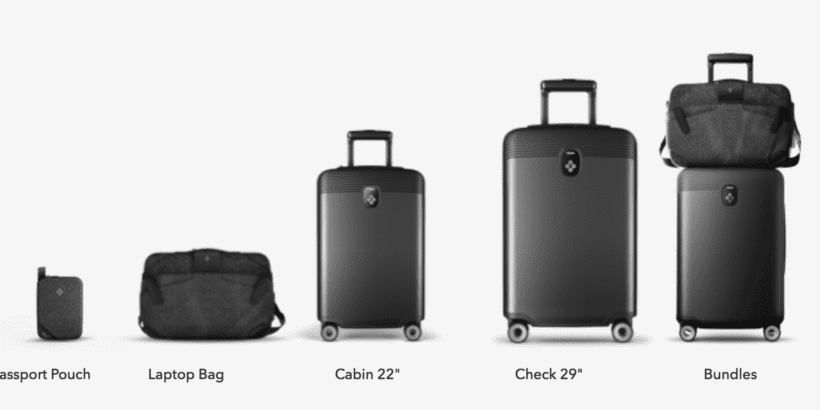Smart luggage has been an emerging trend for early-adopter tech travelers. Many of these bags like those from Bluesmart rose in popularity over the past couple of years through crowdfunding and people continue to be interested in the gadgetry.
Smart luggage comes with a range of features, such as chargers, digital locks, GPS, weight scales, and even the ability to follow you hands-free. Some like Modobag — known as the “carry-on that carries you” — even allow you to “ride” them through the airport….
The ban on smart luggage
Regardless of the variety of smart luggage bags, many people who have purchased smart luggage might be facing some serious issues when it comes to getting through airports. That’s because American, Alaska, and Delta are going to ban these bags from being checked due to possible danger from the lithium ion batteries.
The exception to the rule is that if you can remove the battery from the luggage then you should be able to check in the bag or bring it on board. However, they are not allowing you to even bring smart luggage on as a carry-on if the batteries are not removable.
Here’s Delta’s statement:
Effective Jan. 15, 2018, Delta and Delta Connection will no longer accept as checked or carry-on luggage so-called “smart bags” or smart luggage with non-removable lithium-ion batteries, due to the potential for the powerful batteries to overheat and pose a fire hazard risk during flight.
Alaska also provided a statement:
Smart bags will be allowed as carry-on baggage, if they meet carry-on size limits and if it’s possible to remove the battery from the bag if needed.
If the bag will fly as a checked bag, the battery must be removed and the battery must be carried in the cabin.
If it’s not possible to remove the battery from the bag, the bag won’t be allowed on the plane.
So as long as you’re bag can have the battery removed, you should be able to bring it on as a carry-on or have it checked-in. But if you do check it in, you’ll likely have to carry the battery with you on board. If you can’t remove the battery from your luggage then you probably don’t want to rely on that bag after January 15, 2018.
We still haven’t heard from some of the other major carriers like United, Southwest, and JetBlue but I’m sure we’ll probably hear something soon and it will likely mirror the same restrictions we’ve already seen.
I know there are a lot of folks out there who have already purchased their bags (which aren’t very cheap) and now might be stuck with a luggage bag they can’t use. Fortunately, I’ve read that some of these start-ups who manufacture smart luggage are trying to fight for the acceptance of their product.
For example, Blue Smart released a press release and stated:
To overcome this, we have organized meetings with the world’s leading airlines to make sure that your Bluesmart will be exempt from such rulings. During these meetings we will be demonstrating how our products meet all safety requirements and regulations. We expect to have developments and positive news about these agreements within the coming weeks and before the various carriers implement these new regulations.
Blue Smart is very confident that their batteries are in compliance with all the relevant standard and they believe that they will be excepted from the new regulations. Hopefully that’s the case but if not I hope to see these companies work with affected customers and offer new products that do comply with the new regulations.
Daniel Gillaspia is the Founder of UponArriving.com and the credit card app, WalletFlo. He is a former attorney turned travel expert covering destinations along with TSA, airline, and hotel policies. Since 2014, his content has been featured in publications such as National Geographic, Smithsonian Magazine, and CNBC. Read my bio.

